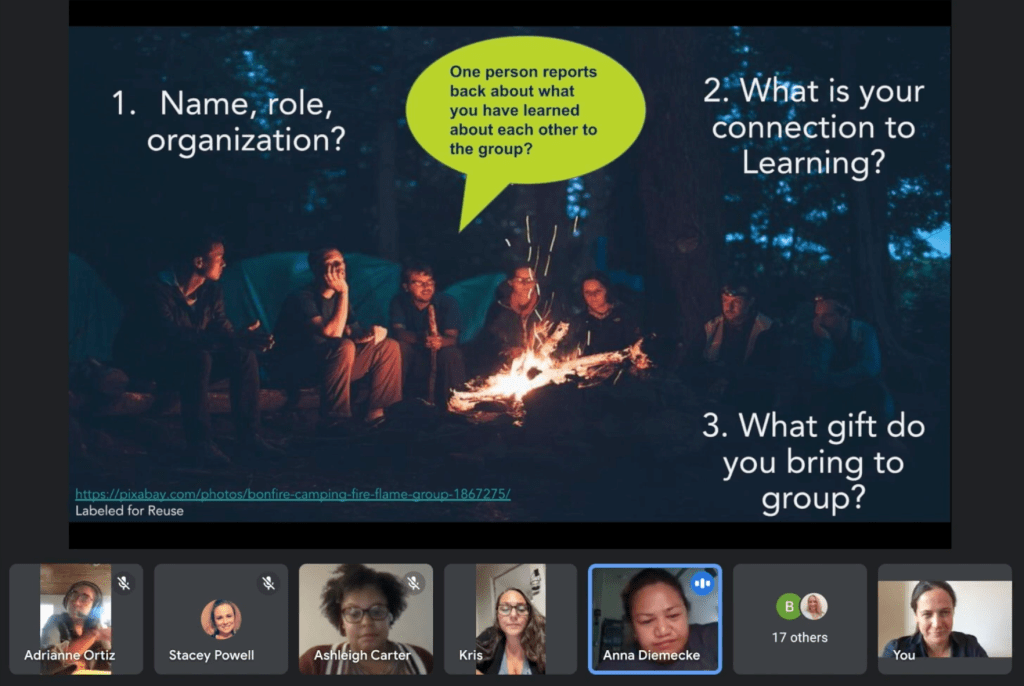In our first class call we were asked to share what gift we bring to the course/our cohort.

I can not help but appreciate that intro discussion question about the gift we bring to this learning journey. This question about gifting taps into the passion that allows for learning naturally. I wonder how many of my adult learners (graduate students) would be willing to open up and share their answers to the same question. How about my colleagues? What giftings do they bring to the advising unit?
Incorporating Daniel Pink’s “three factors for better performance in the workplace (autonomy, mastery, and purpose)” further provides an environment to cultivate and develop these valuable human resources (RSA, 2010). I have never considered that I have a learning environment. Through the content of this course and the program, I am beginning to identify the significant learning environment I can create in multiple areas. My students and I benefit from focusing on their learning environment from an advising perspective. I also see the benefit of creating a learning environment to foster the advising unit. Innovation can provide my audience (students/colleagues) an opportunity that comes from giving them control of the best way to process/provide information. Perhaps by tapping into the question of their gifting, they will each find the drive to continue to improve. Most of all, I want to help create an environment that produces happiness for students and advisors. From a professional perspective giving people the autonomy to communicate challenges by proposing solutions benefits the workplace culture and improves communication. This transparency further provides a foundation for building a trusted relationship between advisors and advisees customized to each learning situation or program requirement. Why not be the one that helps to create that culture?
Videos like these are directly tied to my innovation proposal and fuel my desire to improve the systems and processes for everyone, myself included. Resources like these will continue to shape my reflections as I move toward creating my learning philosophy.
As Sir Ken Robinson (TED, 2010) compares education to the standardization produced by a fast food model, I reflect on an undergraduate sociology text called The McDonaldization of Society. When reflecting on higher education, the author states, “the focus seems to be on how many students (the “products”) can be herded through the system” (Ritzer, 2000, p. 66). We lose humanity when all aspects of life focus on maximum efficiency and consistent output. Humans cannot be standardized, as doing so is the antithesis of customized learning, which aids natural/organic learning, growth, and personal evolution.
In closing, the quote about dreams shared by Sir Ken Robinson (TED, 2010) reinforces my passion for advising. I have the opportunity to help solve problems, translate policy, and provide options while pointing out potential unintended consequences of those different prospects. My students are sacrificing so much to return for their degree or certification. Many students face additional examinations and licensure requirements after their academic studies. Many have families and careers while pursuing their motivations, passions, and purpose. The accomplishments that come from my students persevering in the face of life’s challenges are also dreams upon which “we should tread softly” (TED, 2010).
References
Ritzer, G. (2000). The McDonaldization of Society (New Century Edition). SAGE Publications, Inc.
RSA. (2010, April 1). RSA ANIMATE: Drive: The surprising truth about what motivates us [Video]. YouTube. https://www.youtube.com/watch?v=u6XAPnuFjJc
TED. (2010, May 24). Bring on the learning revolution! | Sir Ken Robinson [Video]. YouTube. https://www.youtube.com/watch?v=r9LelXa3U_I

1 thought on “Learning Revolution”